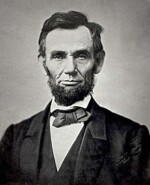The great poet from Russian Literature Mikhail Kuzmin (b. 18 Oct 1872 — d. 1 March 1936) originally was a musician, and later he moved his interest in writing. Kuzmin was from a noble family background. The man who never graduated from the university. He said why I love poetry and explained what it is exactly according to him.
It is easier and simpler poetry falls ready-made from the sky. Like manna into the mouths of an Israelites in the desert.
However, living and setting his goal on the writing did not make his love weaker for music. His work in music has little but has its poisons.
A Friend to all is a friend to none
— Aristotle
Friendship plays an important role in our life. One and everyone gets influence on life because of friends. Thus, Kuzmin also had two influences in his life one was travel and the other was soviet politician and linguist, patrician George Chicherin. They had never relationship less than any friendship.
He extensively travelled, brought many memories but the great turning and life’s learning were from old Believers. Mikhail’s journey had started from Egypt to Italy and his last part where he had spent his life was the northern part of Russia. Furthermore, Mikhail became an important figure in gay literature.
He slowly started gearing up in writing when Russian poet, critic and historian Valery Bryusov found his writing attractive and interesting to read. However, Valery had invited him to contribute to one of the famous literary magazines, Vesy. In the year 1906 for Kuzmin it became the best year for him as two of his famous work published.
His book, The Cycle, seven sections anthology also called as Aleksandrijskie Pesni. However, the book has a total 32 poems. The First two poems considered senses evoking about the great city that he admired was Alexandria (Egypt).
Poem: from “The Cycle” by Mikhail Kuzmin
Like a mother’s lullaby
Over her baby’s cradle
Like a mountain echo
Answering the shepherd’s pipe at daybreak,
Like the remote surge
Of my native sea, long un-beheld
Thy name rings in my ears
Thrice blessed Alexandria!
Like the hesitant whispering,
In the oak’s deep shade,
of love’s confessions,
Like the mysterious murmur
Of the shadowy sacred groves,
Like the lamborine of great Cybele,
Bringing to mind far thunder and the more of doves
Thy name rings in my ears,
Thrice sapient Alexandria!
Like the sound of a trumpet before battle,
The scream of an eagle over the abyss,
The rushing wings of flying NIKE
Thy name rings in my ears
Thrice mighty Alexandria
— The Cycle
Mikhail was the only writer whose first Russian novel, Wings received literary acclaimed and made him widely known.
His poetry is erudite and the themes range from Ancient Greece to Alexandria to modern day Petersburg
— Roberta Reeder
















